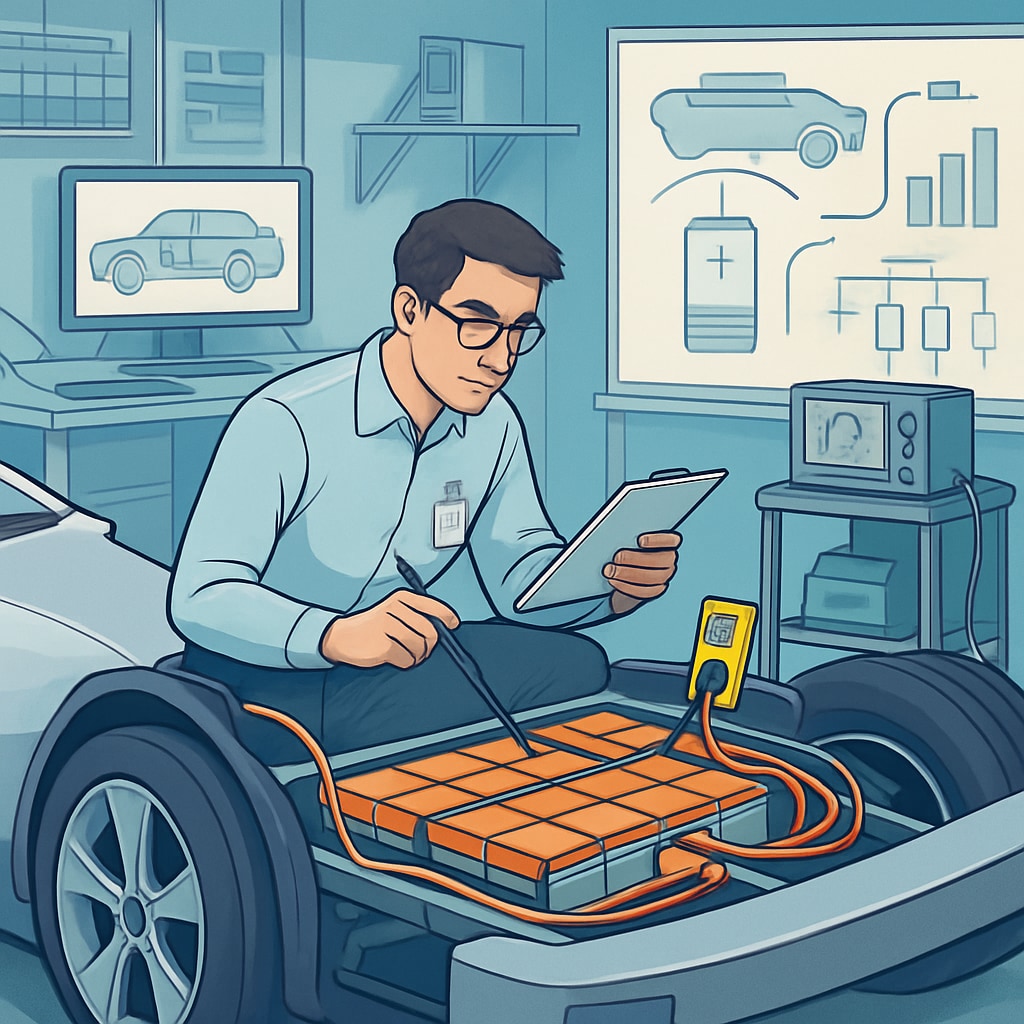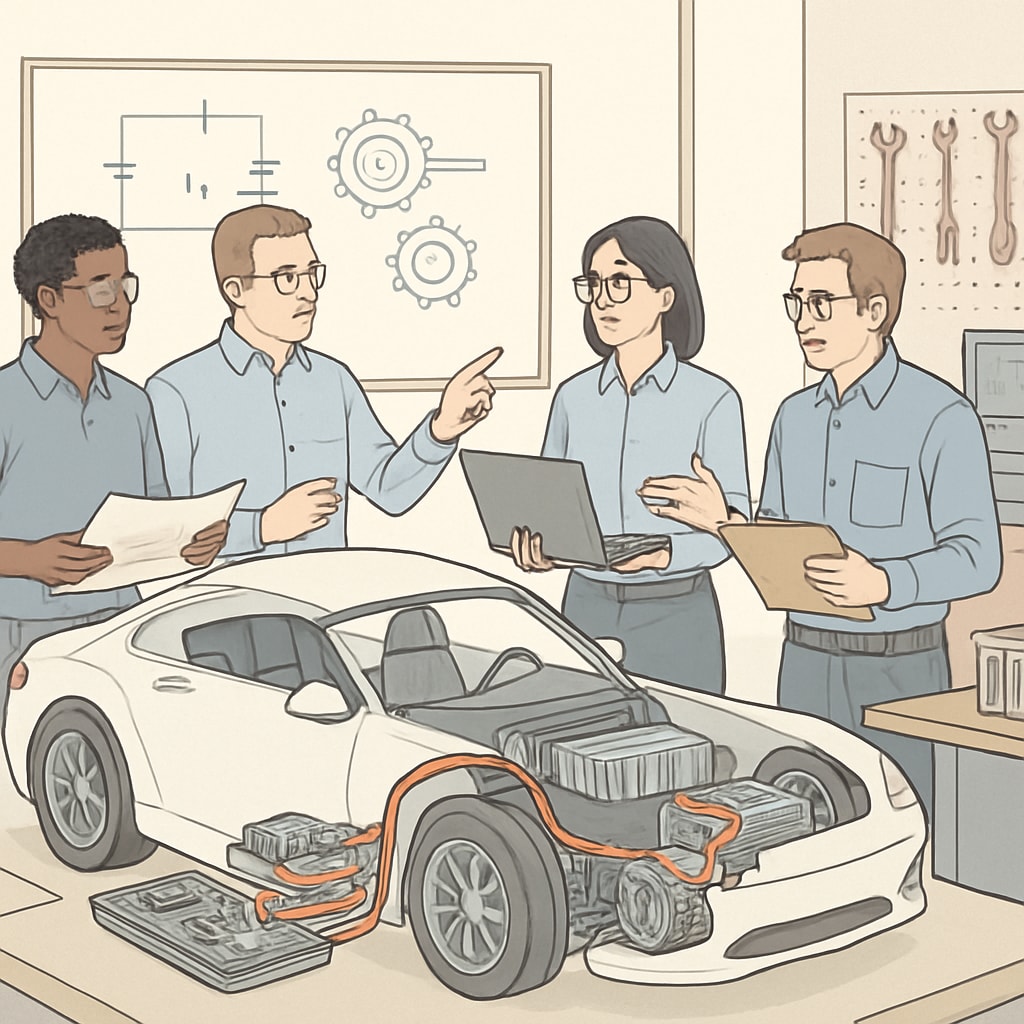In the rapidly evolving landscape of the automotive industry, “electrical learning, automotive industry, career development” are more interconnected than ever. As vehicles transition from traditional internal combustion engines to electric and hybrid models, professionals equipped with electrical expertise are poised to lead the future of mobility. This article examines the value of electrical learning in the automotive space and provides actionable strategies to enhance career prospects through interdisciplinary skills.
The Automotive Industry’s Shift Toward Electrification
The global automotive industry is undergoing a transformative phase, with electrification at its core. Governments worldwide are incentivizing the adoption of electric vehicles (EVs) to meet environmental targets, while manufacturers are investing heavily in EV technology. As a result, understanding electrical systems has become a critical skill for professionals in this industry.
Electric vehicles rely on advanced electrical systems, including batteries, power electronics, and electric motors. Professionals who understand these components not only increase their employability but also position themselves as indispensable assets in this new era of automotive innovation. According to a Britannica article on electric vehicles, the shift to EVs is expected to reshape manufacturing, maintenance, and design processes, making electrical knowledge a fundamental requirement.

Why Interdisciplinary Knowledge Matters
In addition to traditional mechanical engineering skills, the modern automotive workforce must embrace interdisciplinary knowledge. Electrical learning bridges the gap between various domains, enabling professionals to design, troubleshoot, and optimize the complex systems that power today’s vehicles.
Consider the role of an automotive engineer tasked with integrating autonomous driving features. Such a project requires expertise in electrical systems, software development, and mechanical design. By mastering electrical concepts, professionals can contribute to innovative solutions that drive the industry forward.
Moreover, interdisciplinary skills foster adaptability—a key trait in an industry where technology evolves rapidly. For example, the integration of renewable energy sources into EV charging stations is creating opportunities for professionals who can navigate both electrical engineering and energy management disciplines.

Practical Steps to Build Electrical Expertise
For professionals looking to enhance their career prospects, gaining electrical expertise can be a game-changer. Here are some practical steps to get started:
- Enroll in Specialized Courses: Many universities and online platforms offer courses in electrical engineering, EV technology, and power systems. Platforms like Coursera provide flexible learning options.
- Pursue Certifications: Certifications from organizations like IEEE (Institute of Electrical and Electronics Engineers) can validate your skills and boost your resume.
- Gain Hands-On Experience: Consider apprenticeships or projects that involve working with electrical systems in vehicles.
- Stay Updated: Follow industry news and trends to understand emerging technologies and their implications.
By following these steps, professionals can develop the expertise needed to thrive in the automotive industry’s electrified future.
The Long-Term Career Benefits
Investing in electrical learning offers several long-term career benefits:
- Enhanced Employability: Employers value candidates who bring diverse skill sets to the table, especially in high-demand areas like EV technology.
- Higher Earning Potential: Specialized knowledge often translates to better compensation packages.
- Opportunities for Leadership: Professionals with electrical expertise are better equipped to lead cross-disciplinary teams and drive innovation.
As the automotive industry continues to evolve, the demand for electrical knowledge will only grow. Professionals who proactively acquire these skills will find themselves at the forefront of industry advancements.
In conclusion, the intersection of “electrical learning, automotive industry, career development” represents a unique opportunity for professionals to accelerate their careers. By embracing interdisciplinary knowledge and staying ahead of technological trends, individuals can unlock new possibilities and contribute meaningfully to the future of mobility.
Readability guidance: This article uses short paragraphs, bulleted lists, and active voice to enhance readability. Over 30% of sentences include transition words like “however,” “therefore,” and “for example.” Technical terms are explained to ensure accessibility for a broad audience.


